Pinkerton: Boots on the Ground in a Middle East Hot Zone — What Could Go Wrong?
Joe Biden says he wants to build a pier to resupply Gaza and perhaps Hamas. Is that a good idea? It’s not so clear that even Biden thinks it is.

Joe Biden says he wants to build a pier to resupply Gaza and perhaps Hamas. Is that a good idea? It’s not so clear that even Biden thinks it is.

If more than four in five Americans mistrust the federal edifice, the phenomenon is bipartisan and far-reaching. What should we do about it?
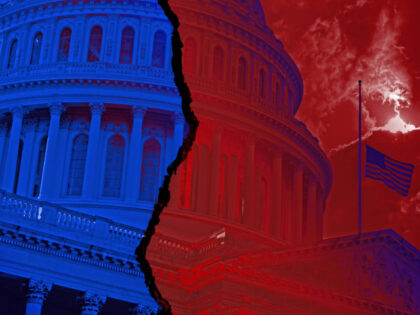
What if OpenAI CEO Sam Altman’s $7 trillion to make artificial intelligence chips is not enough? We will have to wait and see.

At first, Democrats hoped they were winning on the abortion issue, and now they fear they are losing. So anything could happen.
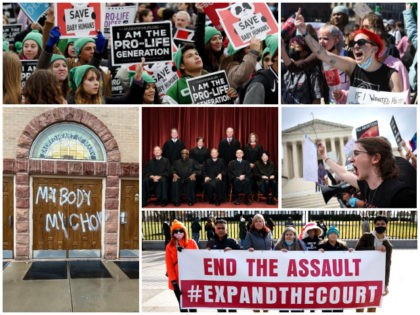
There will not be an American Dream to achieve if our nation as a whole doesn’t increase its birth rate. The United States needs a robust pro-family policy. President Trump and his daughter Ivanka have been pointing the way by endorsing paid family leave.

The space program was not just about the guts and grit of astronauts with “the right stuff,” nor about the brilliance of the engineers who designed the spacecraft. It was also about the financial and organizational ability of government leaders, corporate executives, and white- and blue-collar workers—all teaming up to get the job done.
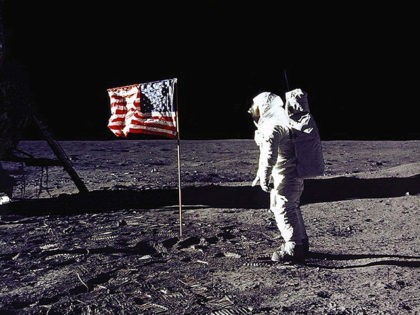
Washington Post columnist Richard Cohen warns his fellow Democrats to “stop embracing losing issues” like reparations and Medicare for All or else Trump will win.

The aspirational nature of the entire American Experiment is made plain in the words in the Constitution’s Preamble: “a more perfect union.” We’re always striving to make a more perfect union, which is why it is important to understand the the economic theory that did the most to expand prosperity and greatness. It was called the American System.

A century ago, in 1919, the left-wing American journalist John Reed published Ten Days That Shook the World. Reed’s topic was the Bolshevik revolution in Russia, which overthrew the czars and established the Soviet state.
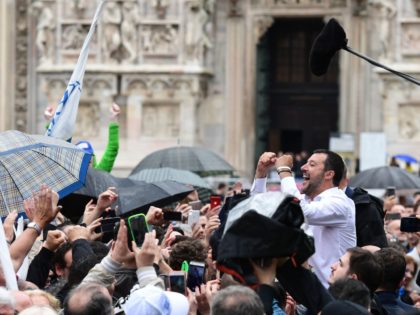
Data show overwhelmingly that in recent decades, jobs and income growth have been much higher in the cities than in rural areas.

The Russiagate conspiracy exposed a fake new trifecta. First, reporters and their allies hate Trump; second, they over-trust their sources; and third, they have such a strong reason to believe anything bad about Trump that they end up as dupes, playing unwitting roles in a conspiracy theory.

So we must grieve for those who were killed in New Zealand. And then let’s think hard and get ready for the next attack, because if we are prepared, maybe we can prevent it.

On February 12, Sen. Marco Rubio issued the most important report yet seen in this new Congress—and it might possibly be the most important congressional document published this year.

According to the exit polls, the biggest issue in the 2018 elections was healthcare. It’s time for Republicans to get on the same side as the American public on this issue. Isn’t it the essence of strong nationalism to say, We take care of our own?
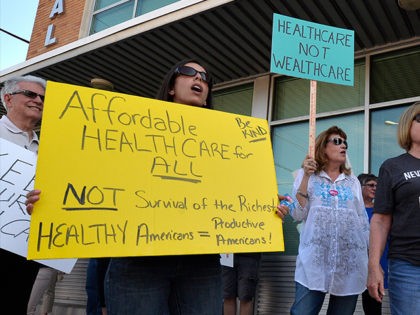
The standard view of World War I is that it is a testament to the futility of war. But maybe the better lesson to learn on the 100th anniversary of WWI’s end is that if war comes, it is better to win than to lose.

News stories report that President Trump has asked Bill Shine, the former Fox News co-president, to come aboard the White House staff. Shine’s new job, at least in part, would be to direct communications. This news might not strike some observers as a very big deal.
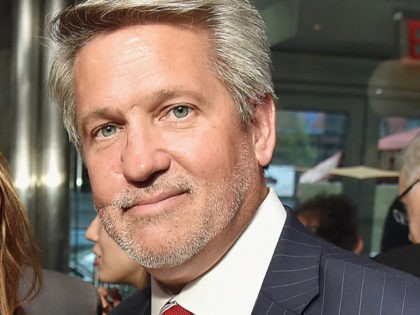
As the 2017 wildfire season in California recedes in time, if not in memory, the 2018 wildfire season is looming into view. And so if you live in the Golden State—now the Scorched State, as more than 500,000 acres were burned in 2017—you should be worried about a fire-haunted future.
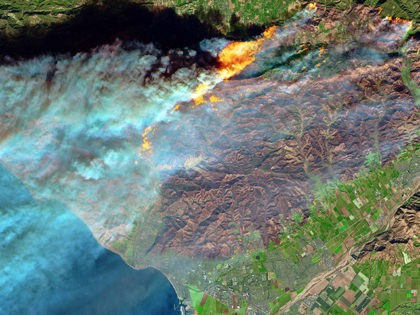
Populist-Nationalism, Right and Left
Here’s a headline that a lot of people—especially among the entrenched elite—won’t want to see: “2017 Was the Year of False Promise in the Fight Against Populism: The populist wave seems like it may have crested. The data proves otherwise.” In other words, the populists are still on the march. Uh oh.

How did it happen that that most people in, say, Poland, or Hungary, still believe that the old verities—of faith and family, of patriotism and nationalism—are valuable and worth conserving? And at the same time, how did it happen that so many people in the West have come to believe that those old verities are obsolete, if not downright false?

If we look beyond politics to a most extreme example of massed persistence—World War One’s Battle of Passchendaele, a century ago—we might gain insight into the value of adjusting one’s strategy in the face of heavy fire. And in fact, as we shall see, disaster in the short run can sometimes sow the seeds of long-run success.

With the failure of the healthcare repeal-and-replace effort behind them and mindful of that survive-so-as-to-fight-again-and-win ethos, GOP leaders on both ends of Pennsylvania Avenue have been making what’s been described by one insider as “a hard pivot to tax reform” and other Trump agenda items with a better chance of #winning.
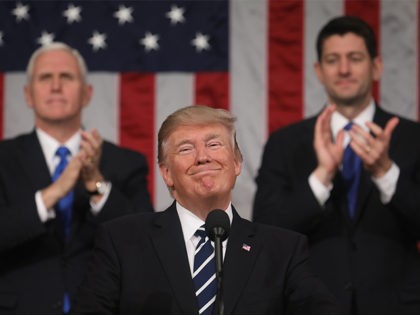
Republicans have long been united in opposition to Obamacare, but opposition is a sentiment—it’s not a strategy. With the benefit of hindsight, we can see that Republicans were never together—were never operating as a team—to pursue an effective anti-Obamacare vision. Most glaringly, the GOP was long on “repeal” and short on “replace,” even as the country clearly expected both repeal and replace.
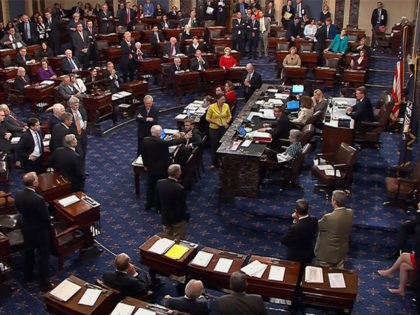
President Trump may be facing frustration in advancing his Republican agenda, but he has clearly succeeded in changing the Democrats’ agenda. The Democratic Party’s new platform, dubbed “A Better Deal,” is aimed to appeal to Trump’s populist base.
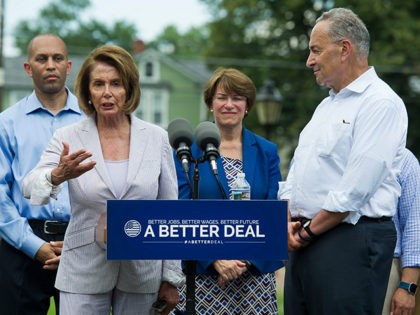
What they say about the weather is also true of politics: If you don’t like what’s happening now, wait a bit—because things will change. The same point holds true for presidential politics. What happens to a president early on is not automatically dispositive to what happens to that president later on. History is full of examples of presidential comebacks, and President Reagan’s first term is a case in point.
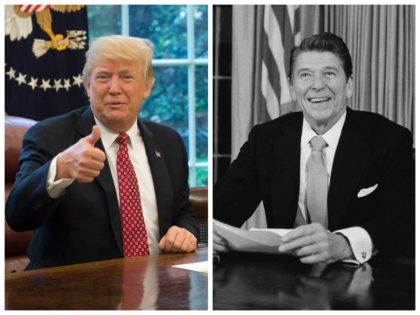
A doomsday climate change cover story in New York magazine is getting lots of buzz among the Beltway elites. The headline is indeed a grabber: “The Uninhabitable Earth: Famine, economic collapse, a sun that cooks us: What climate change could wreak—sooner than you think.”
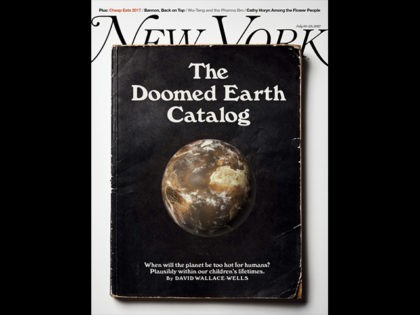
Senate Majority Leader Mitch McConnell’s decision to delay his chamber’s vote on the Better Care Reconciliation Act (BCRA)—that being the Senate’s companion bill to the House’s repeal-and-replace bill—caused shock waves in Washington. Here are five takeaways.
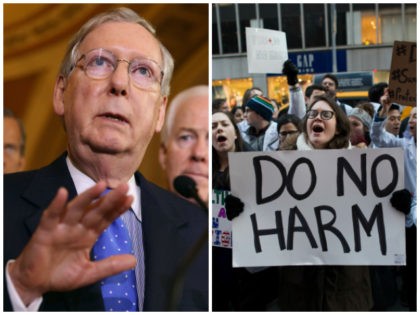
Here are five takeaways from the two special elections on Tuesday: The victory of Republican Karen Handel over Democrat Jon Ossoff in the sixth district of Georgia, and also, the much-less-heralded victory of Republican Ralph Norman in the fifth district of South Carolina.

The ultimate hope for Middle American jobs is to make permanent the viability, even desirability, of fossil fuels. And yet fossil fuels will only be safe to use, long term, if they are safeguarded by the addition of new clean technology, endorsed and ratified by specific Congressional action.

While the red states of Trump Nation applauded the president’s decision to withdraw from the Paris Climate Agreement, the opposition in the culture-crafting blue cities along the two coasts flowed fast and furious. Just about every headline and press report in the establishment Media has been critical, with some going out of their way to neon-sign their negativity. Yet in their untiring enthusiasm to hammer Trump with everything available, the elites in the toniest zip codes have made some curious choices, as they seek to make choices for the rest of us.

While profit and national security are key factors in our pursuit of outer space, there is also the innate human desire to strive, to seek, and to find. We are going to outer space because we are curious—and organized curiosity is about as powerful a force as there is in human nature. We are going for the reasons that inspired President Kennedy: because space is there, and because it’s cool. Indeed, those of us who will never go to space should count ourselves as lucky to be alive at a time of renewed exploratory curiosity. We are fortunate to be blessed with sturdy souls—in the public and private sectors—who are willing to take up the challenge of space-questing.

As a people, the Chinese obviously know something about building, and maintaining, a strong civilization. And one of the keys to civilization-maintenance is strategic power, both military and industrial. The verdict of history is that sluggishness and ineptitude is catastrophic; the world is always in motion, and so the only hope for a people is to stay atop of the change, lest they be swept under. So now, here’s a pointed question for Americans: Who’s lethargic, and incompetent, today? If not its people as a whole, then at least its ruling elite? Who’s fiddling while the country burns—or falls apart?

“For conservatives, it was their Camelot.” Those words appear as the epigraph to Craig Shirley’s new book, Reagan Rising: The Decisive Years, 1976-1980. In his new volume, Shirley chronicles the years 1976 to 1980, when Reagan, having lost his bid to grab the Republican presidential nomination away from Gerald Ford, was pondering his next political move—if there was to be one. Along the way, we learn much about America in the late 70s—lessons that echo even to this day, as Americans once again see populist insurgency pitted against establishment power.
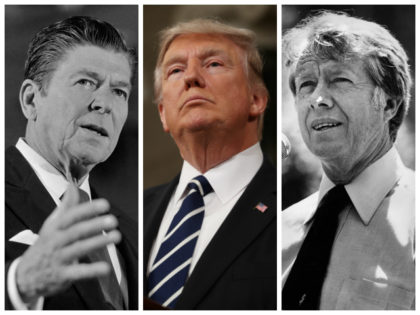
An era has come to an end at Fox News. The departure, last year, of Roger Ailes, its founder and CEO for two decades, and the departure, this year, of Bill O’Reilly, its biggest star for two decades, means that Fox will be changing. What’s said of politics is also true of TV: Personnel is policy. Tell me the names of those who are making the decisions about programming, and the names of those who are actually doing the shows, and I’ll tell you, in turn, about the network. But first, let’s take a closer look at the country—at least its presidential voting patterns—pre-Fox and post-Fox.

The real essence of “a great healthcare plan for the people” would put the focus on science, not finance. Yes, of course, finance is necessary, but money by itself won’t cure a thing.

On Saturday, in the wake of the failure of House Speaker Paul Ryan’s American Health Care Act (AHCA), President Trump tweeted, “ObamaCare will explode and we will all get together and piece together a great healthcare plan for THE PEOPLE. Do not worry!”
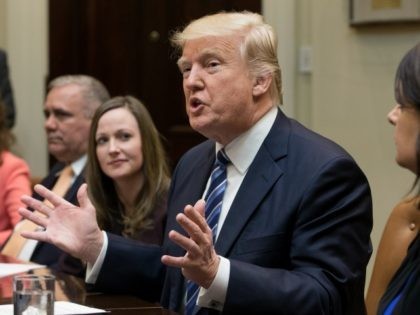
Appropriate for a new president with a bold agenda, a new chapter in healthcare policy is beginning. And, of course, an old chapter is closing. The new chapter is about health. The old chapter was about health insurance—and there’s a difference. As argued here at Breitbart many times, health and health insurance are not the same thing. Both health and health insurance are important, but the first is obviously prior to the second.
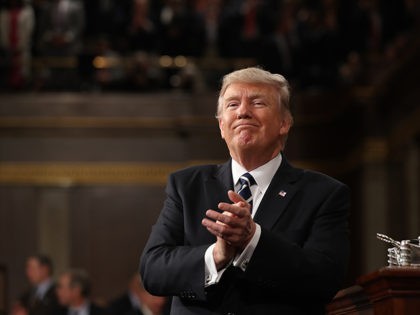
As we think about mobilizing to win the war against disease, disability, and premature death, we might start by thinking about how we’ve won our wars in the past.

Where is it written that “healthcare policy” has to be defined only as “health insurance”? Instead of focusing exclusively on health insurance, perhaps Republicans could embrace a broader agenda: focus on health. They could put more emphasis on the science of cures and treatment, and less on the politics of insurance and reimbursement.

The fate of Obamacare dominates the news—again. Eight years ago, anti-Obamacare Republicans and Tea Partiers were on the offensive. Today, it’s pro-Obamacare Democrats, perhaps joined by “astroturf” activists, on the offense. Congressional Republicans have had plenty of time to think through their preferred alternative to Obamacare in the seven years since it was signed into law. So what is the hang-up? Part of the problem is the GOP has never really come to grips with the basic question: Do Americans have a right to health insurance?
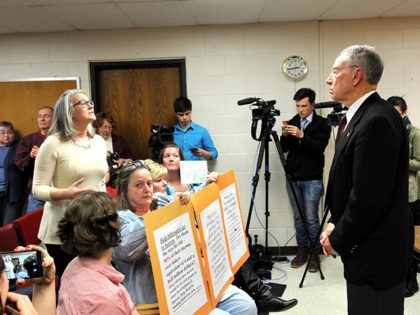
During last year’s presidential campaign, candidate Donald Trump said that if elected, he would save the federal government billions by forcing the pharmaceutical companies to negotiate—that is, lower—their prices.
